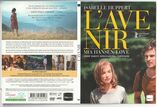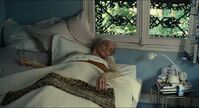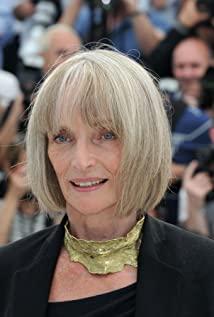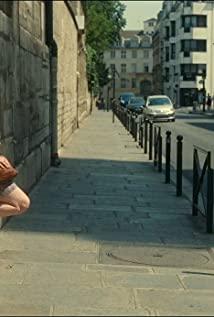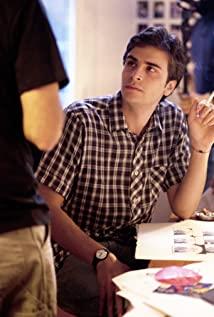During this period of time, the image of Yu Peier wearing a dress printed with pink and pink roses and holding a book will always come to her mind, walking through the forest alone. She came to a deserted grassland, looking around constantly, in the wheat-yellow prairie. He found a relatively less thorny piece of ground among the weeds and lay down on his side, looking at the book decently.
Of course, saying "respectable" doesn't mean dwarfing Aunt Yu. She knows that Aunt Yu's role is a philosophy teacher, and living in a romantic cultural capital, she must have long since gotten rid of (or not needed) the "reading" incidental A sense of superiority and vulgar taste, always able to escape into the realm of meditation as if no one else was there. Maybe the above looks a bit bitter and ironic, but I must forgive me, it has been more than half a year since I watched this film, and the memory has long been blurred to the point where there is no boundary, only the roughly cut "literary" image is left, and then with other There are such bad words when things are mixed together. In fact, they are just imposing their narrow prejudices on a virtual imaginary enemy to achieve the effect of criticizing others and comforting themselves. There is a saying that Wenqing is in place: "Burning others, illuminate yourself."
"Something else", shamelessly said, I have also taken a book and sat on the ground in an uninhabited wood. Naturally, the wood should not be selected too deep, because it will cause the effect of "occasionally discovered" to support I maintain the image of focusing on reading. It was a kind of hypocritical mentality similar to "doing good deeds without leaving a name", a kitsch act of "immortals only show their mountains and dew", and at the same time, they had to meditate in their hearts: "I just need to read quietly." This kind of behavior reminds me of "Nietzsche, who still worked ten hours a day at a desk despite his illness, and created great spiritual wealth for mankind...", far too far, I naturally haven't read Nietzsche, and the ellipsis also proves that my memory is not good. condition.
Let’s talk about that horse, the horse of Turin, the horse that was beaten madly by the groom, and that Nietzsche hugged and cried bitterly. Its debut should be Tuo’s “Crime and Punishment” by Raskolnico, a poor college student. Before the execution of the murder, the husband was tortured by anxiety and fell into a nightmare. He saw the groom almost frantically beat the horse that could not walk in front of the crowd, and he actually shed tears.
tears! Omen, I see it as an omen, a spoiler for Tuo's poetry. There is hardly any logical connection or narrative foreshadowing between the content of the dream and the full text, but it is an omen, a omen that Raskolnikov's "killing" will inevitably fail, a person who believes in "superman" To shed sympathetic tears for a useless old horse essentially proves that he has no chance of becoming a "superman" in his mouth, and as the story progresses, he is tortured by conscience and finally realizes that he is not a "superman". ".
After going around for a long time, I actually want to say that people who have "pretend" to read in their hearts may not have the possibility to "escape into meditation" from the very beginning. ”, in order to avoid falling into the cave of pseudo-literature youth, folk philosophy, and folk science at any time.
Out of my longing for "absolute sincerity", I have my thoughts about Natalie, a middle-aged philosophy teacher played by my aunt. She shows us an intellectual who believes in rationality and insists on the unity of knowledge and action at the film level. , in the face of the long-running emotional, family, and career multi-dimensional collapse like a buried bomb being detonated by a lead at the same time. Like a statue, when her husband told him the fact that he had cheated in person, she still maintained a high level of emotional control, and only sighed, "I thought you still loved me", and was taught the rationality from childhood at that moment. It turned out to be a depression that had to keep smiling after being betrayed. At this point I can't help but admire rationality! However, I am saddened by the powerlessness of anger. Is there a behavioral logic that predicts the absurd but is powerless to resist and chooses to self-resolve?
There are many similar things, being ridiculed by others, being indifferent to relatives and friends, being attacked by classmates, or going out to the society, being criticized by a boss, being mocked by colleagues, betrayed by a lover, many things can’t be resisted, maybe you can be angry, once, twice, probably no more than three times , and ultimately only rational.
Husband betrays, love is no longer, only reason; if you are a student, you have to be rational; if your mother dies, you have to be rational; to a certain extent, philosophy seems to teach people to "see through", it provides you with different abilities. A self-justified worldview, you choose one, then believe and insist, it is a coordinate system of a nihilistic, chaotic, and physical world, through which Natalie builds a rational, dialectical, questioning, and truth-seeking personality, but in the end she finds that life is too unreasonable Now, the impact of sensibility on physiology is unimaginable. I remember a scene where she was followed by a strange man for love at the theater. She seemed to have some physical reaction, but she quickly declined, and then she received her mother's fall and died. The news, she immediately lost her mind, her feet seemed to be a little unstable, and dizzy, she walked to the driveway to stop the taxi. I wonder if she had ever asked herself at that moment, "Didn't you already see that birth, aging, sickness and death are the inevitable laws of human life, why are you still panicking like a girl in a diaper?". The blows of life to her have come one after another: I heard that your husband betrayed her and that her career was not going well. These blows are like omens, harbingers of the division of people, the division between reason and sensibility, the seesaw of control and collapse, and omen that people are not sages. I mentioned earlier that the "taste of sarcasm" is actually a question of "rational authority", and for oneself, rationality is mean to oneself.
So in the face of a broken life and imperfect rationality, how should people deal with themselves? Perhaps Tuo has already given the answer: to love, the lack of rationality must be followed by sensibility, just as Natalie gently sang a lullaby with her crying grandson at the end of the family reunion on Christmas Eve, and the camera slowly pulled out , freeze a warm color, even if the things are different, the tears will flow first, but the relief that love can bring is eternal.
View more about Things to Come reviews



